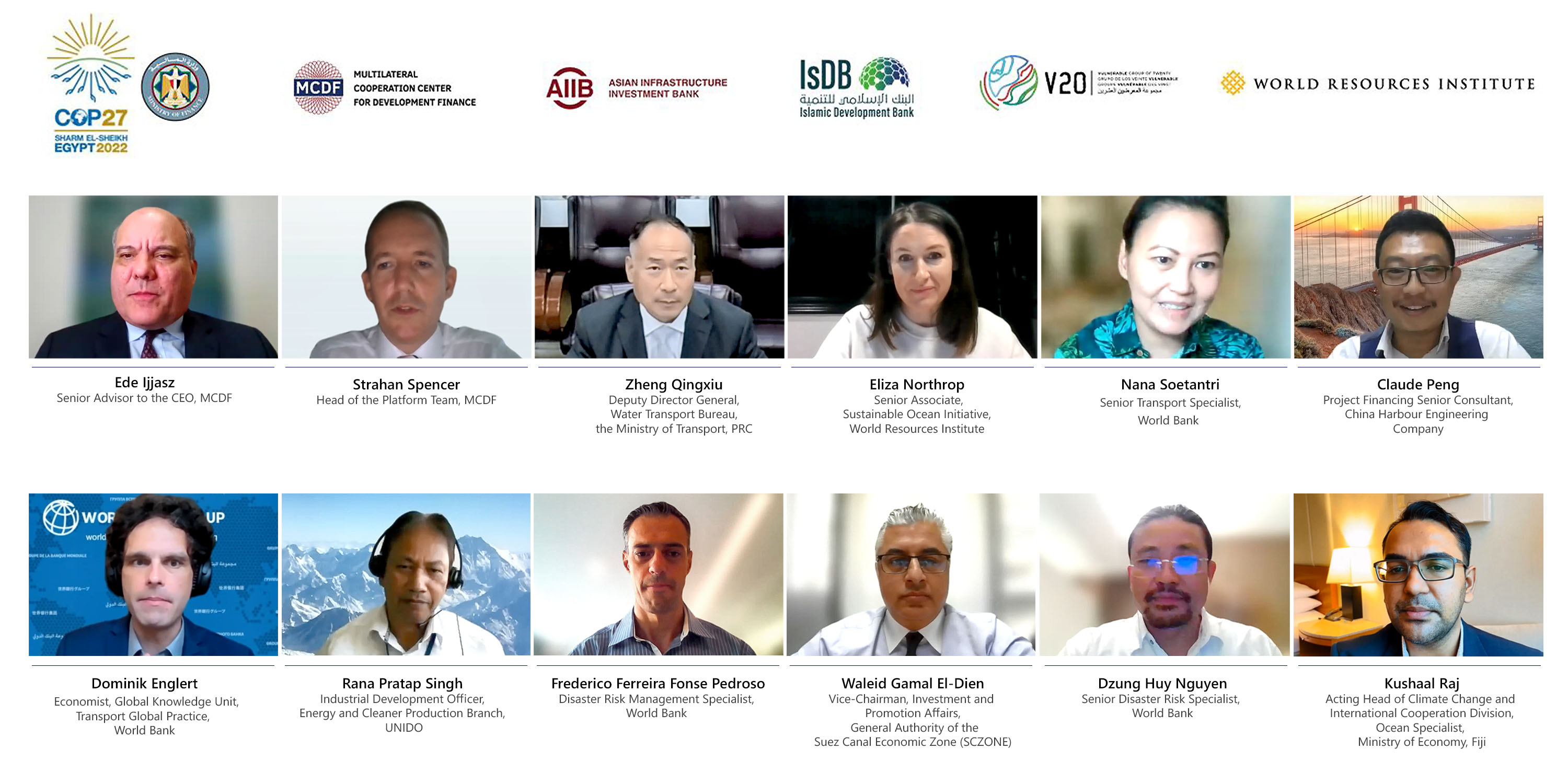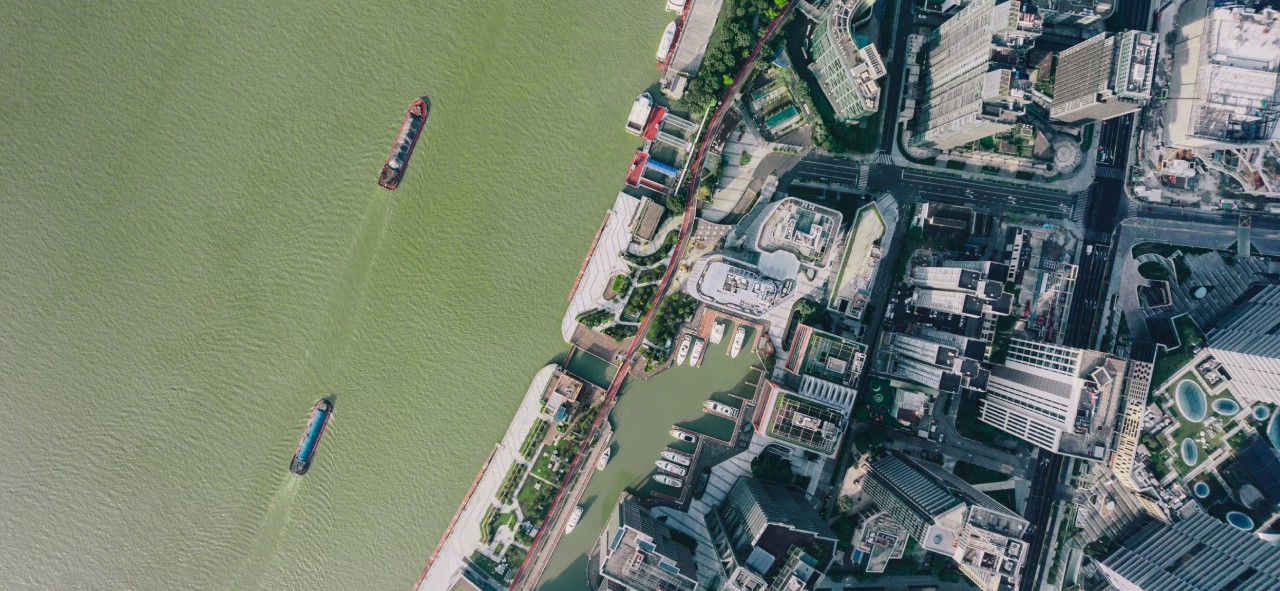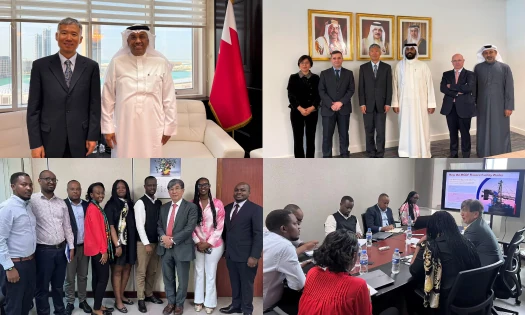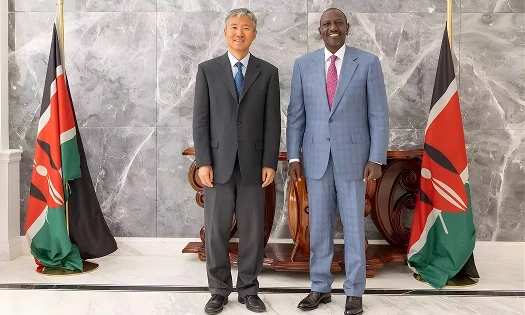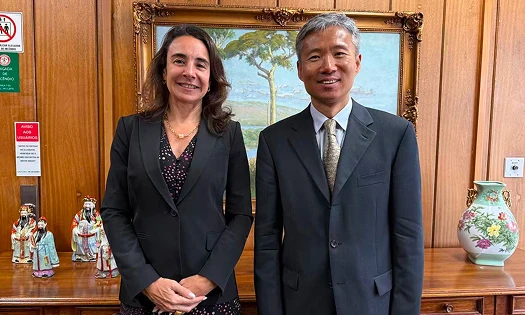The latest in a series of Multilateral Cooperation Center for Development Finance (MCDF) workshops strengthening the nexus between climate and connectivity infrastructure focused on ensuring coastal infrastructure is climate smart.
Experts in various fields of coastal development and climate change gathered recently to explore how shipping lanes, as well as coastal industries and communities, can become more resilient to climate extremes while also adopting lower carbon energy pathways.
The online gathering was the second in MCDF’s four-part “Workshop Series on Climate-Smart Connectivity Infrastructure: the road to Sharm El-Sheikh COP”. These workshops are designed to ensure infrastructure of the future is built with climate considerations at its core. This workshop series is jointly hosted by MCDF with the Egyptian Ministry of Finance, the Asian Infrastructure Investment Bank (AIIB), the Islamic Development Bank (IsDB), the Vulnerable Twenty (V20) Group, the World Resources Institute and the World Bank.
The workshops have been developed under the umbrella of Egypt’s COP27 Presidency, with the intention of driving momentum for successful outcomes at this year’s international climate change conference in the Egyptian city of Sharm El-Sheikh in November.
The focus of this workshop on coastal trade and infrastructure addressed an urgent need to reduce sea-based environmental damage - brought into stark relief by the UN Ocean Conference earlier this month. The reduction of humankind’s carbon footprint in our interaction with the oceans is vital if we are to achieve the Paris Agreement and the net-zero emission goals of many nations. Maritime transport accounts for about 80 percent of global trade. While shipping is currently responsible for 3 percent of global emissions, this figure corresponds to the current emissions of Germany. Furthermore, this figure could rise to 17 percent if nothing is done amid projected rapid rises in maritime traffic.
Vast investments will be necessary to move from fossil fuel-based shipping energy sources, in use for the past 100 years, to new low-carbon sources. Workshop participants, however, highlighted promising breakthroughs in the use of new energy sources such as green hydrogen (generated through renewable electrolysis) and blue hydrogen (generated through fossil fuels with carbon capture and storage). They also pointed to current moves to establish “green corridors” - trade routes between major port hubs which are working towards low- and zero-emission solutions – as a basis for the total decarbonization of shipping and the coastal infrastructure that supports it.
Climate adaptation was another major theme of the workshop. Sea level rise is projected to threaten as many as 14 percent of the world’s major maritime ports with coastal flooding and erosion. Just as important are the local effects of climate change, which threaten development prospects in Small Island Developing States (SIDS). A number of the workshop participants emphasized the need to move away from the notion that adaptation investments are too costly. They stressed that such moves are not only necessary to protect people’s lives and livelihoods, but they are financially profitable – leading to substantial investment returns later.
The workshop participants included a broad range of coastal infrastructure experts from the governments of Fiji and China, the World Bank, the United Nations Industrial Development Organization (UNIDO), the Suez Canal Economic Zone, the World Resources Institute (WRI) and the China Harbor Engineering Company.
The ongoing Climate-Smart Connectivity Infrastructure workshop series recognizes that seven years after the Paris Agreement, the climate crisis is more challenging than ever - exacerbated by the looming energy shortage and food crisis. High-quality infrastructure that connects regions and countries in sustainable ways has a key role to play in fulfilling the Paris Agreement.
With the intention of matching words with action, the MCDF workshops are more than just “talking shops.” They are designed to bring together project proponents and financers, culminating in a special event at COP27 to showcase climate-smart projects ready for implementation. The next two MCDF workshops in September and October will focus respectively on transport and energy.
Keep an eye on the MCDF website to learn more about our workshop series. And feel free to contact secretariat@themcdf.org if you would like to join upcoming workshops or access resources from past workshops hosted on our JIGSAW platform - MCDF’s novel digital tool which shares information between stakeholders focusing on high-quality infrastructure and connectivity.
Launched in 2020, MCDF is a multilateral initiative designed to meet the needs of developing countries for high-quality connectivity infrastructure investments to achieve the Sustainable Development Goals (SDGs) and help implement the Paris Agreement. To do this, we have a grant-based fund and a collaboration platform providing three services: information sharing on best practices and projects, capacity building, and financing for project preparation.
